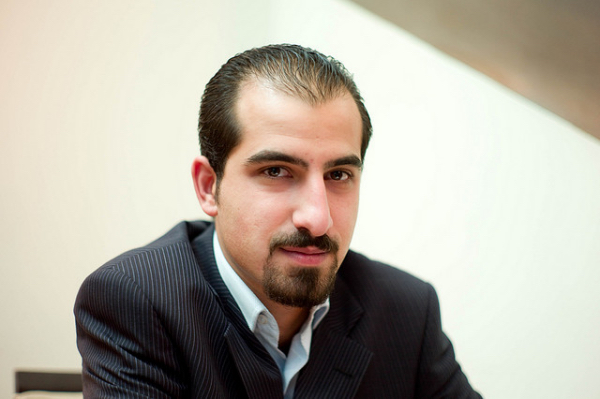Guest post by Fátima São Simão, CC Portugal Public Lead; Teresa Nobre, CC Portugal Legal Lead
CC Toolkit for Business Handouts
CC Toolkit for Business Posters
CC Toolkit for Business Videos (ENG + PT)
CC Open Business Model Canvas
At the 2013 CC Global Summit in Buenos Aires, Creative Commons launched the CC Toolkits Project, an initiative aimed at developing, collecting, and organizing informational and support resources about CC. As part of that project, CC Portugal proposed to develop a toolkit to help promote the use of CC licenses in business. And last month at the 2015 Global Summit in Seoul, we presented the first “tools” to be included in the business-focused toolkit, including a handout, poster, and short video.
We were particularly interested in developing this project for two main reasons:
- Portugal is a European country in a deep economic crisis for the last several years. Being a small economy (our population is about 10 million), its companies need as many resources as possible to gain and maintain their access to international markets.
- We are an economist and a lawyer with experience, respectively, in business development and legal consultancy for the creative industries.
We’re very thankful for the contributions and valuable input from Paul Stacey, Eric Steuer, Sarah Pearson, Ryan Merkley, John Weitzmann, and Gwen Franck.
Why a CC Toolkit for Business?
Even if the uses of CC seem relatively clear to artists and creators, the licenses have been more difficult to justify when the authors’ activities involve commercial interests. The main goal of the CC Toolkit for Business is to allow companies to understand why the use of CC licenses can be an interesting instrument to consider in their business model.
Why Use CC Licenses in Business?
As Paul Stacey puts it, Creative Commons licenses amplify the affordances of digital technology and provide an enhanced means for social production in the networked economy. CC licenses do this by:
- removing artificial scarcity constraints;
- removing barriers to access;
- enabling rapid distribution and use;
- allowing for customization, personalization, adaptation, translation, and localization;
- providing a means for mass participation: fellow creators, end users, customers, and partners can contribute their expertise, suggest improvements, add new features, make enhancements, create derivatives, and ensure currency;
- distributing production, and making it possible to produce work faster, generate work of greater breadth and depth, innovate, and increase quality; and
- creating materials that are part of a shared global commons from which resources can be extracted for local use and to which local resources can be contributed.
The 6 Economic Benefits Identified
The toolkit materials focus on the 6 economic benefits of using CC licenses that we have identified so far: 1) reduce production costs, 2) reduce transaction costs and legal uncertainty, 3) increase access to innovation and reduce marketing costs, 4) increase first mover advantage, 5) increase “opportunity benefits” and build a reputation, and 6) promote sustainability. We examine these benefit further in this document. They are a work in progress–we think there is still room for improvement and additional discussion. If you are interested on helping us continue developing these tools, please send us your feedback to creativecommons.pt@gmail.com.
What’s Next?
- The CC Toolkit for Business should also include practical tools (like the different open business model canvases CC has been developing), case studies from different sectors and countries, and a list of Frequently Asked Questions that will help to explain the pros and cons of CC licenses for business. CC Portugal will continue to work on developing the FAQ and other materials we find relevant to the project.
- Creative Commons will soon publish the book Made with Creative Commons: A book on Open Business Models, as the result of an extremely successful Kickstarter campaign.

